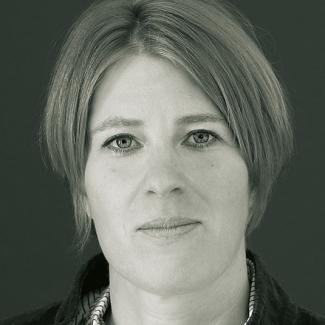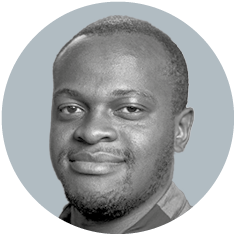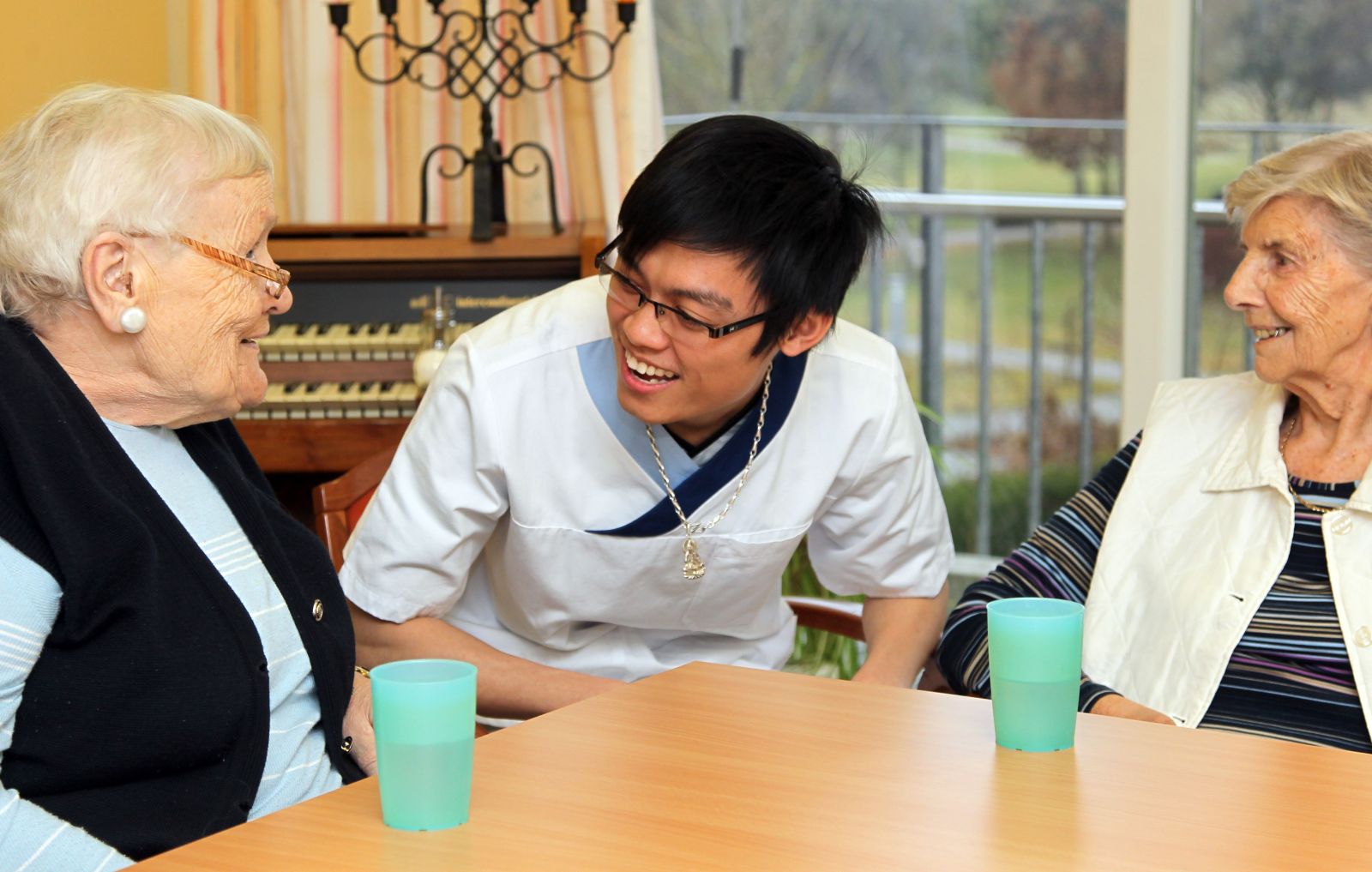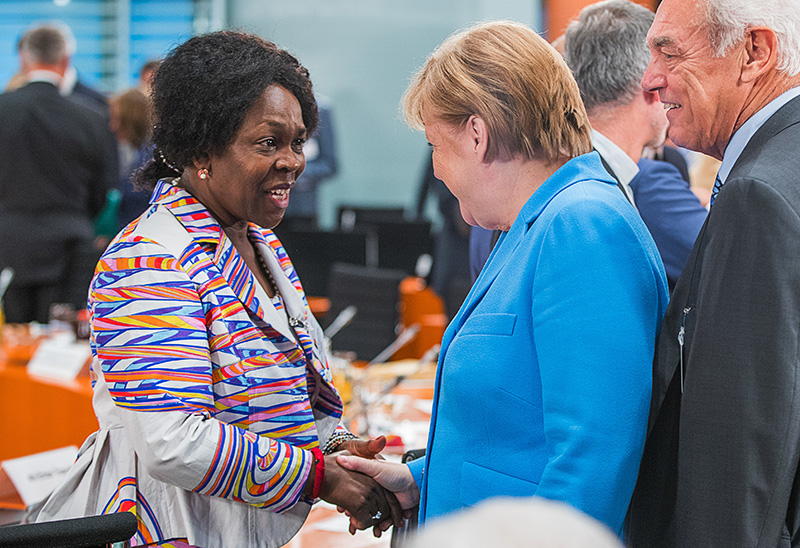African academics
Looking for happiness abroad
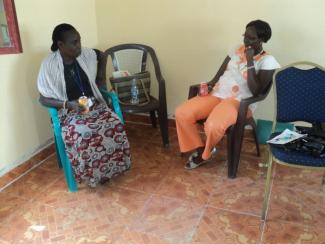
Faihda Dede Ombasa lives in Arua, a town of simple mud huts and houses with corrugated iron roofs in north-western Uganda. During the civil war in the late 1970s, Faihda received a scholarship and became the first girl from the area to have the opportunity to move to Vermont in the USA and acquire university entrance qualifications there. She was anxious at first, but everything went well: “I was surprised by the warmth and sincerity of the welcome I received,” she recalls.
An elderly couple took her under their wing and became her new family. Rural Vermont seemed the perfect place for her: “I liked the town and the people, with their liberal views and their belief in fairness, equality and freedom.”
But before long she discovered that the society around her also had a darker side: “I was so surprised to find poverty there and people who were homeless. And I obviously soon learned that being black there means being inferior.”
Another scholarship took Faihda to New York, where she studied social work. She stayed there as a social worker, supporting vulnerable young people. The first trip home to Uganda marked a watershed: “In 1991, I came for the funeral of my elder sister, who had died of AIDS. Within a very short time, I knew that I would move back to Uganda. I suddenly realised that I no longer wanted to live in that country.” And so, just a few years later, she returned to the place where she had grown up.
Her parents were overjoyed – also by the fact that she would soon present them with a grandchild. However, the child’s father, who is Ugandan, did not leave the USA to join Faihda as he had promised. As a single parent, Faihda had no place in society, so she agreed to become the second wife of a man in the neighbourhood. She still lives with him and his first wife today.
Shortly after the birth of her daughter, Faihda joined the team of governmental development programme. Her foreign experience proved useful: “My second parents in the States had introduced me to a totally different set of values. They turned me into a confident, bold woman.” She tried to modernise the rural communities around her: “It was important not to be judgmental about social conditions. Gradually and with great respect, I tried to sensitise people to change. After all, they are my own people.”
Faihda continues to work for various Ugandan and foreign organisations today. Her heart is always with ordinary people. To a young woman who wants to go west as she did herself her advice would be: “Don’t think the streets in the west are paved with gold. You need to work hard to achieve anything – three times as hard as a local person. Try to make something of yourself. And never forget where you come from.”
Positive experiences
From an early age, Irene Dawa strived to become able to make her own decisions. For a woman who grew up in Uganda, she has an extraordinary story to tell: ”I went to Europe to do a master’s degree in peace studies. Then I spent various periods in the USA, Sudan and South Sudan as well as the Caribbean. Everywhere, I had incredible experiences.” She adds, however, that in western countries, people would often not believe that a well-educated, independent woman could be from a developing country. “They expected me to be looking for a better life in the West, to be a supplicant,” she says.
She made lots of positive discoveries in the west as well: “When I went to Europe for the first time, I was amazed to find that total strangers were willing to help me,” she says. From those days as a student in Austria, she still has many friends all over the world. She meets them on assignments as an adviser to international organisations. She is a committed women’s rights activist, and specialises in conflict management and refugee issues. Most recently, she worked in a huge refugee camp in Uganda, on the border with South Sudan, where most of the refugees come from.
It is not always easy to move between different worlds. “When I come home to Uganda, I’m overjoyed to see my father and have a chance to speak my own language. But we also often argue – because my time abroad has made me very self-assured,” she says. “I am accustomed to taking my own decisions. At home, others want to decide for me and plan how I should spend my money, but I no longer accept that.” She insists that the family consult her about everything that affects her.
Irene Dawa still has many ambitious plans for the future. She recently established her own aid organisation and has applied for a PhD programme in England. Her aim is to run a large women’s rights organisation in order to promote educational and development opportunities for women.
Her advice for other young women wishing to move to the West is: “First of all, think seriously about why you want to leave your country. Then stick to the path you choose – because you can easily go astray in other countries if you don’t know what you are looking for. Respect the culture of the people and absorb what you feel is good for you.”
Open future
Father Joseph Adriga (not his real name) prepares the Sunday service in his parish in western Germany. It is a routine task. The Ugandan clergyman has served as Catholic parish priest in Germany for nearly ten years.
It all started with an ecclesiastical doctoral studies grant: “My bishop suggested that I should do a doctorate in Germany and I went along with that. I was being groomed at the time for a senior position in the diocese.” At the time, Father Joseph had already been to Germany a number of times on seminars.
He has vivid memories of discussions with Joseph Ratzinger, who later became Pope. Of course, exchange with other African priests was intense as well: “We always said that dogmatic theology may well be good in a Western context, but life in Africa does not work like that. We discussed the issue for nights on end.”
When he started ministering German parishes while pursuing his doctoral studies, Father Joseph found he had to adjust quite a bit. The biggest difference was speaking in almost empty churches. “I was shocked to find that people don’t go to these wonderful churches, and that more and more parishes are being merged. That is something we priests struggle to come to terms with,” he says.
On the whole, however, he enjoys working and living in Germany. “I am needed here as a priest. And I have a secure income – unlike in Uganda, where I am always dependent on the collection, on people giving me something even though they don’t have much themselves.” He sums up: “Here, the church takes care of me.”
What he misses is the company of friends and family. He says, loneliness is actually a very common problem in the west: “People here have everything, except commonality". So he looks forward each year to the summer vacation he spends back home – even though people there express constant demands that he should support them financially.
Values at home in Uganda and Germany, in his second home, also differ in other areas. Those differences can make pastoral duties difficult: “In the beginning, I mainly listened,” he says. “In time, I came to understand that it is always about lending support and that even things we don’t understand are resolved in prayer.” Whether he will stay in Germany for good has yet to be decided. He will be allowed to stay as long as he is doing his PhD. After that, the decision rests with his Ugandan bishop.
Joseph is worried that he may no longer be accepted at home, that he will be regarded as someone who has set foot in immoral Europe and lost African values and the true faith. In that case, the only option would be to switch to a German diocese – for good.
His advice to a young African colleague would be: “Going away can be life-changing. At some point, it may be very difficult to go home. You should bear that in mind.”
Isabella Bauer is a freelance journalist and development consultant specialising in East Africa, Southern Africa and Germany.
isabella.bauer@gmx.de
